
Why Iceland Is the Safest Country in the World
In 2023 Iceland was ranked 3rd safest country in the world. Find out why Iceland has been among the top safest places in the world for years.
Considering moving to Iceland? With its enchanting landscapes and northern charm, Iceland has become a sought-after destination not just for travel but also for relocation. If you're wondering how to move to Iceland and start a new life in Iceland, here's everything you need to know.
Living in Iceland is a unique experience. The country boasts a reputation as a safe, picturesque, and hospitable place with a robust community and high quality of life. However, before you make the big move, it's crucial to do thorough research to avoid potential issues.
I still vividly recall the thrill of purchasing my ticket to Iceland four years ago. That sunny spring day marked the beginning of what I thought would be a two-month adventure. Little did I realize it was the beginning of my decision to immigrate to Iceland for good.
After my journey, my bond with Iceland grew even stronger. My partner and I, both smitten by the country, decided to make it our home. This decision wasn't impulsive. We spent countless hours researching, which saved us from potential missteps after our move to Iceland.
To give you a snapshot of what Iceland is like, consider these quick facts:

Absolutely! There are myriad reasons why this Nordic island is often regarded as one of the best places to live. First and foremost, the natural beauty is unparalleled. The landscapes here are breathtaking, from the mesmerizing northern lights to the endless summer days. But there are more reasons why living in Iceland is one of the best choices you can make.
Iceland consistently ranks as one of the safest countries in the world. In 2023, Iceland was ranked as the 3rd safest country in the world. And this wasn’t the first time! For the 15th time since 2008, Iceland has been recognized as one of the safest countries, according to research by Berkshire Hathaway Travel Protection (BHTP) and the Global Peace Index (GPI) statistics. The full details can be found here.
Safety in Iceland isn't just about the absence of external threats. It's about the internal peace and security that residents feel. The country boasts an impressively low crime rate. From minor offenses like theft to more severe crimes, incidents are rare. The police force doesn't even carry guns, and the country doesn't have an army. This trust extends to child safety, with many parents allowing their children to play outside without constant supervision.
Iceland is renowned for its unique landscapes, but did you know it also ranks high for air quality? The air is so clean and fresh that many Icelandic parents let their babies nap outdoors. Additionally, while Iceland is home to a variety of wildlife, none pose a threat to humans. From Icelandic horses to Arctic foxes, the animals you might encounter are more likely to charm than harm.
Iceland is a beacon for LGBTQ+ rights, with events like Gay Pride in Reykjavik celebrating love in all its forms. The country also stands out for its gender equality, with a virtually non-existent wage gap and active participation of women in politics. The Icelandic sense of community is strong, with locals known to be welcoming hosts to tourists, always ready to lend a helping hand.

Moving to Iceland is thrilling but demands careful planning. If you're wondering how to move to Iceland and integrate seamlessly, it's essential to prepare. Being an EU citizen made things somewhat easier since Iceland, though not an EU member, is part of the Schengen Area. However, moving abroad always demands a thorough preparation.
We dedicated a year to saving up and planning. That year changed our fantasy about Iceland, but we didn’t mind – it took us closer to the reality we wanted. It's the approach we took and would recommend to anyone looking to live in Iceland long-term.
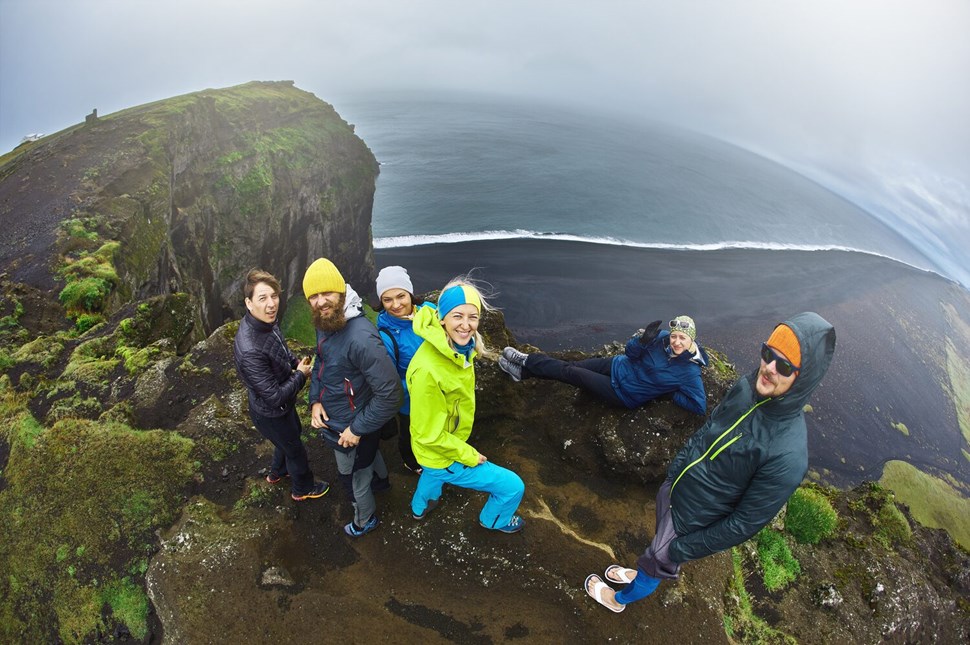
Before you move to Iceland, a good starting point is joining relevant Facebook groups. Engaging with travelers, immigrants, and fellow countrymen in Iceland can offer insights into common questions and solutions.
Here is one of the most popular Facebook groups about Iceland:
To truly integrate, it's vital to stay informed about local events and issues. Here are some reliable English news sources about Iceland:

The Icelandic climate can be a challenge for some. It's essential to be mentally and physically prepared for weather in Iceland. Ensure you have appropriate clothing and be aware of potential issues like Seasonal Affective Disorder.
While Icelandic remains the official language, approximately 98% of Icelanders are fluent in English. This proficiency makes it feasible for newcomers to begin their journey in Iceland using just English. However, if English isn't your first language, achieving fluency in Icelandic is essential, especially if you aim for roles beyond housekeeping or dishwashing. Even in those roles, a solid grasp of basic to intermediate Icelandic is necessary.
Diving into the Icelandic language is vital for those planning an extended stay, aspiring for a fulfilling career, or seeking genuine connections with locals.
Given the uniqueness and intricacies of Icelandic, locals deeply value and appreciate efforts to learn their language. So, why wait? From engaging apps and informative YouTube tutorials to comprehensive websites, there's a plethora of resources to kickstart your Icelandic learning journey.
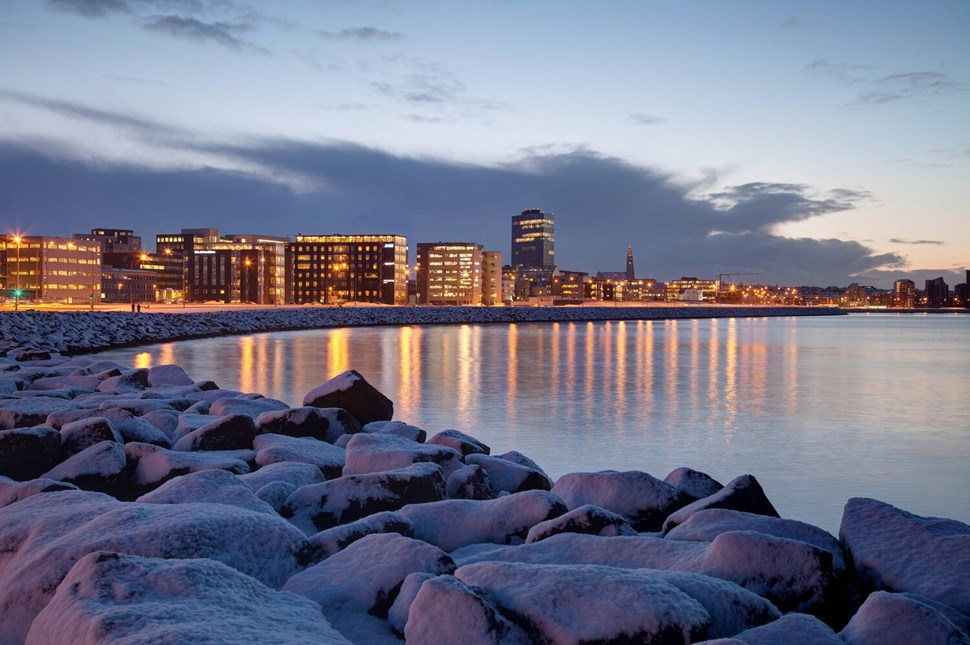
Iceland boasts impressive living standards. The unemployment rate has shown a steady decline in recent years: 4.5% in 2021, 4.1% in 2022, and it's projected to be 3.8% in 2023. Salaries in Iceland are notably high compared to many other countries. However, it's essential to note that Iceland ranks among the most expensive countries globally.
Before considering a move to Iceland, it's advisable to thoroughly research living expenses to get a realistic understanding of the financial landscape. Because in short, Iceland is not a budget-friendly place. Consumer prices are 35% higher than in the US, with restaurants being 42% more expensive. However, rent in Iceland is comparable to the US.
Before making the move, it's a good idea to keep an eye on job listings in Iceland. This will give you insight into the in-demand professions and the language requirements for each. For instance, roles in the tourism and hospitality sectors are typically easier to secure with just English proficiency. On the other hand, landing a corporate or office position might be challenging without a grasp of Icelandic. So, if you're aiming for a more ambitious career path, it's crucial to be mentally prepared and set clear objectives.
Moreover, wages in Iceland have seen an upward trend. They increased to 808,000 ISK/Month in 2022, up from 768,000 ISK/Month in 2021, according to the Confederation of Icelandic Enterprise.
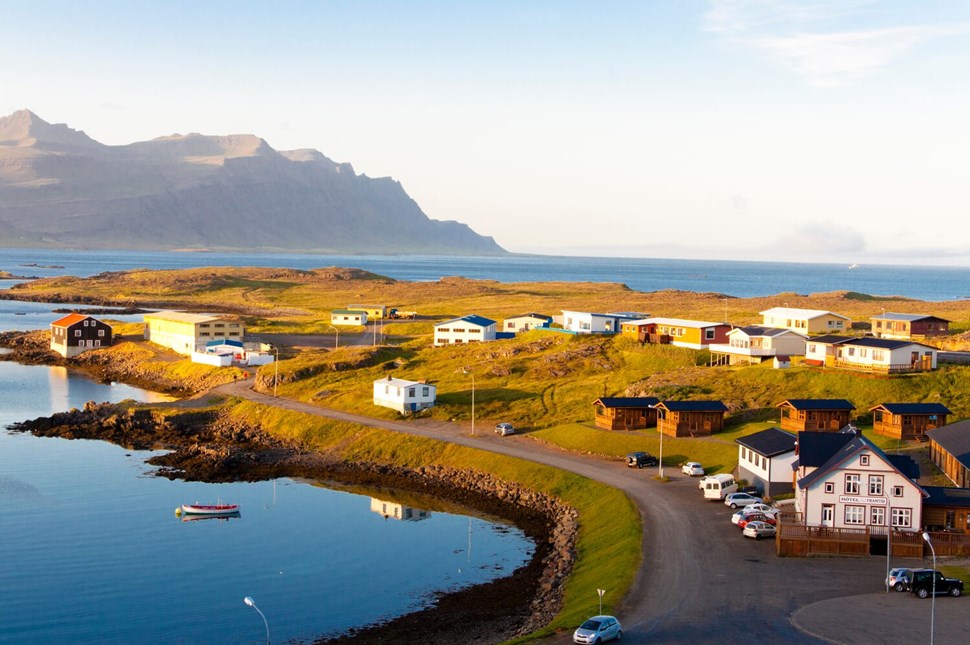
Most Icelanders own their homes, leading to a smaller rental market. Renting is less common, with 80% of properties being privately owned. The rental market is primarily driven by classified ads in local newspapers.
Quickly, you'll realize that securing an affordable rental might be a tougher challenge than landing a job. When a decent apartment is listed, the demand is immense. Those with local references and stable employment often have the upper hand over newcomers. It's essential to have a strategy to demonstrate that you're a reliable and outstanding tenant.
If you’re wondering which Icelandic cities are best for expats, Reykjavik, the capital, is, of course, the obvious choice as it is vibrant and cultural. But, additionally, Hafnarfjörður is known for its Viking culture, and Akureyri is ideal for outdoor enthusiasts!

By 2030, Iceland anticipates the need for an additional 30,000 international workers, largely driven by the booming tourism sector. With over 2 million tourists flocking to Iceland annually, the local population of 350,000 struggles to meet the demand. Consequently, the call for foreign workers is on a steady rise.
Data from Statistics Iceland underscores these trends:
Grasping your rights and duties is essential, especially when you're transitioning from a different cultural and legal background. What might be a standard practice in one nation could be legally controversial in another. Equally vital is recognizing your rights as an expatriate, laying the foundation for a seamless integration into your new home.
The Icelandic Human Rights Centre plays a key role in promoting human rights awareness and research in Iceland. They also monitor the status and implementation of human rights in the country. For immigrants, the Centre offers legal counseling sessions on Tuesdays and Fridays between 10 am and 4 pm, though it's essential to schedule an appointment in advance. They've also undertaken various projects, including an initiative titled "Your Rights - Information for Foreign Women in Iceland."
Another valuable resource is the Multicultural and Information Centre, which provides insights into the diverse cultures and backgrounds of people residing in Iceland.

After our year of diligent planning and saving, it's finally time to set our Icelandic journey in motion. The foundational steps in establishing oneself in a new nation typically involve securing accommodation and employment and gathering essential documents to integrate into the local community.
Here are some quick facts about Visa and immigration requirements for moving to Iceland:
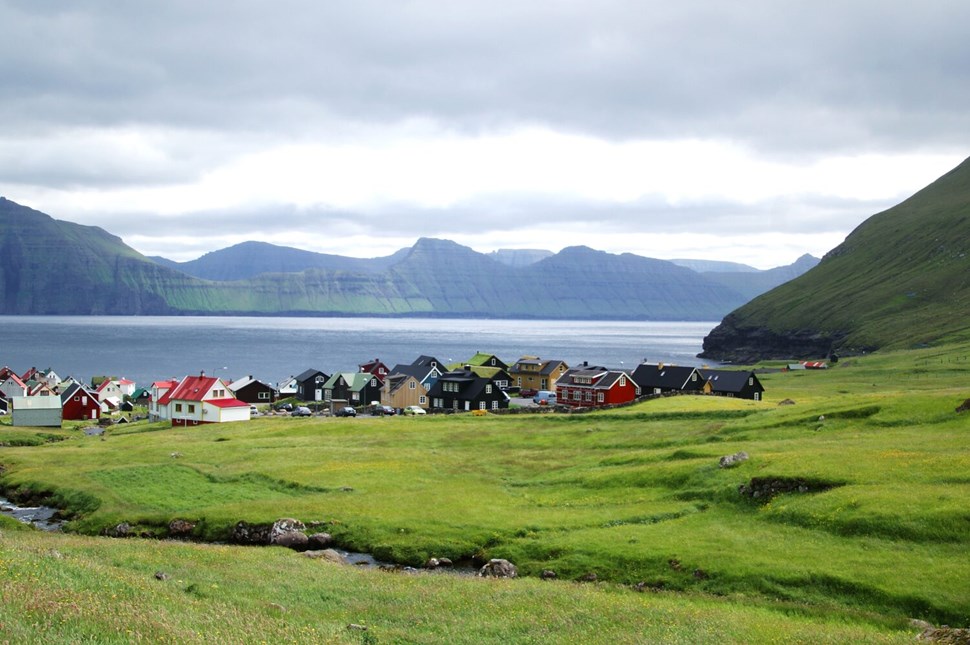
Now, let’s dive into the documentation process for immigrating to Iceland. The immigration procedures vary for EEA/EFTA and non-EEA/EFTA citizens. And understanding a few nuances can smooth your transition.
Fortunately for us, nationals from EEA/EFTA regions can reside in Iceland for up to three months without registering a domicile. This extends to six months if we would be actively job hunting.
Given our long-term plans, we needed to secure a 'kennitala' - a ten-digit personal identification number. To obtain this, one must personally visit the Þjóðskrá Íslands (Registers Iceland). The approval process can span up to 9 weeks, so it's advisable to initiate your kennitala application soon after you arrive in Iceland.
For more detailed information:
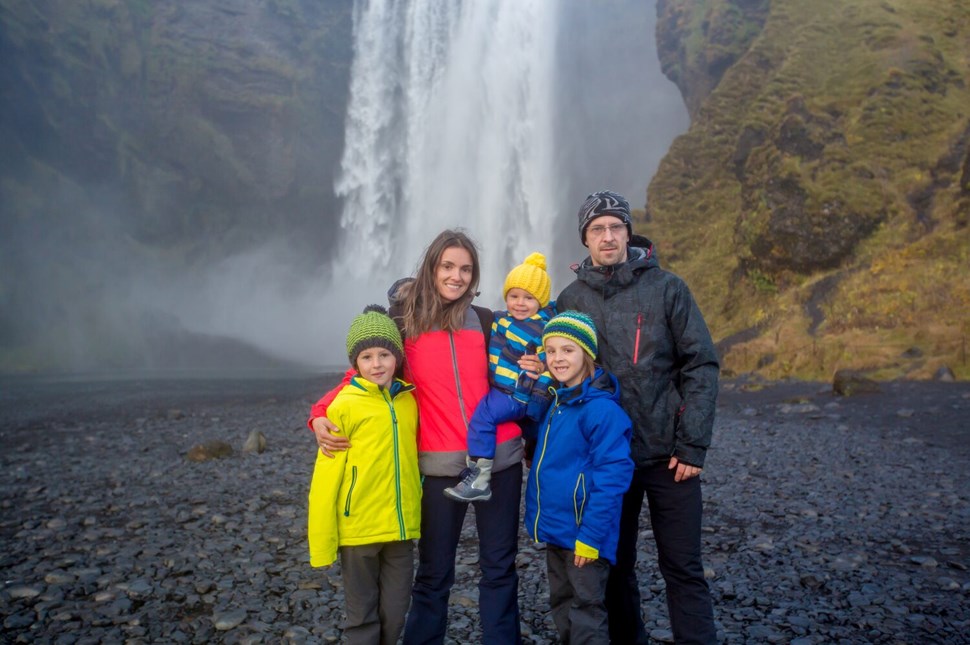
In Iceland, the Kennitala is a must. Think of it as your all-access pass, linking you to employment, taxation, healthcare, and social benefits. Whether you're opening a bank account, seeking employment, or renting a place, the Kennitala is your key.
For EEA/EFTA newcomers, a swift approach is to first register for a short-term stay and then acquire a Kennitala from banks like Arion Banki or Islandsbanki. This will set you back around 8000 ISK, and you'll need an ID photo for your new debit card.
During this phase, there's no need to formalize your residency in Iceland. You can use a provisional address, be it from a friend, your employer, a host family, or even your Airbnb. This temporary Kennitala empowers you to legally hunt for jobs and rent accommodations. However, note that it expires in three months if you don't secure employment.
Once you've landed a job and have a fixed address, it's essential to register your domicile with the Icelandic National Registry to upgrade to a permanent Kennitala, a process that typically spans 2 to 3 months.
For those outside the EEA/EFTA regions, moving to Iceland might come with its share of red tape. Most individuals must secure a residence permit from the Directorate of Immigration if they plan to stay beyond three months. Once this permit is in hand, they can apply for their Kennitala upon setting foot in Iceland.
An integral part of this application mandates that you demonstrate your financial self-sufficiency in Iceland. Without an employment contract, you should have a minimum of 189,875 ISK monthly (or 284,813 ISK for couples) in your bank account as of 2021
The Directorate of Immigration provides comprehensive details on the requirements and processes. It's worth noting that recent changes in immigration laws have extended the validity of specific permits and enhanced rights related to family reunification as of August 2023. It's always advisable to stay updated with the latest regulations and guidelines.


Only the latter two (qualified professionals and family reunification) lead to a permanent residence permit. The rest of the permits are temporary and expire when the work/course expires, and you must leave Iceland immediately.
After residing legally in Iceland for six months, individuals automatically become part of the Icelandic social insurance system, irrespective of nationality. Iceland offers advanced healthcare in urban areas. The system is state-run and funded through taxation. Only citizens and residents are entitled to public healthcare, with some fees applicable for certain services.
For EEA citizens, the transition is smoother; they can shift their health insurance to Iceland from the day they register their legal residence. To facilitate this, EEA citizens should acquire the E104 form, which verifies their insurance from their last country of residence. This form, along with the 'Application for Health Insurance,' should be submitted to Icelandic Health Insurance. If you haven't secured the E104 form, the European Health Insurance Card can act as a safety net, covering emergency expenses.
It's advisable to directly consult Icelandic Health Insurance for the most recent and accurate details. Recent updates from the Icelandic Health Insurance in August 2023 indicate changes in the registration process and the introduction of digital services. For instance, as of 1 October 2023, older registration methods supporting the Íslykil will be discontinued. Additionally, a new online service has been introduced to process medical equipment bills digitally.

Engaging in undeclared work or volunteering in exchange for food and accommodation in economically active sectors, such as farming, is prohibited in Iceland. Newcomers, especially those navigating the rental and employment markets, can find themselves in dangerous situations if they're unaware of their rights.
When you begin legal employment in Iceland, a minor union fee is automatically deducted from your salary. This union serves as your advocate, ready to assist with queries about your rights, earnings, vacation days, or any other work-related matters.
Two of the prominent unions in Iceland are Efling and VR. The VR union, for instance, offers a range of services to its members, from career development advice to vocational training grants. As of August 2023, the VR union has made significant strides, including the launch of VR housing and the decision to sever business ties with Íslandsbanki.
Personal income tax in Iceland is progressive, ranging from 31% to 46%. However, we’d advise you to get professional tax advice when moving to Iceland from the US.

Finding a community and making new friends is integral when settling in a new country. Local associations are available to assist immigrants in adjusting, and it's always beneficial to connect with others who are in the same boat.
If you're curious about love life in Iceland and the social dynamics, read on about the dating scene in Iceland. The country's approach to relationships and the role of Icelandic women in society can provide insights into the local culture.
From my interactions, Icelanders come across as warm, open, and friendly. While locals might jest about the "reserved Icelandic persona," I've found this stereotype far from the truth.
However, if you're keen on truly integrating and making lasting connections, understanding the Icelandic language and culture is essential. And if you're wondering how to make Icelanders like you, there are some cultural nuances and etiquettes to be aware of. Embracing these will undoubtedly help in forging strong bonds in this enchanting nation.
Here are more helpful sources to check if you plan on living in Iceland:
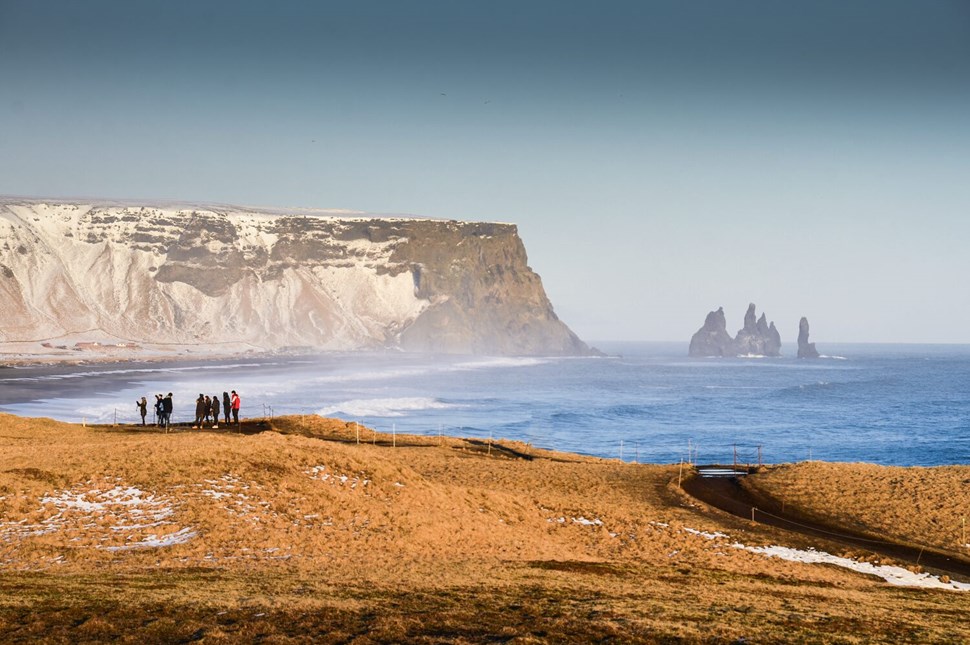
Making a new home in a foreign country is not always easy. You can be very well prepared but will often face unexpected challenges. We faced occasional hurdles even after a year of meticulous planning and saving.
But here we are, enjoying the breathtaking Icelandic nature, northern lights in winter and the midnight sun in summer, healthy food and low pollution, social trust and values, high living standards, and so on.
Just over a year since my arrival, I've secured a position in my profession, surrounded by a fantastic team, enjoying the same rights as any local. And in a few years, I'll be eligible for Icelandic Citizenship. But then again, who's keeping track?
Moving to Iceland requires some preparation, especially from outside the EU/EEA. Securing a work contract and obtaining the necessary permits can be a process, but with the right documentation, it's manageable.
Pros: Safe country, beautiful scenery, high-quality education, vibrant culture, established expat communities.
Cons: High cost of living, small rental market, potential challenges in job-seeking without local connections, long winter nights.
Yes, a US citizen can live in Iceland, but they will need a valid residence, work permit, and visa if they plan to work or stay long-term.
Yes, you can legally move to Iceland. EU/EEA citizens can visit without a visa, but staying more than 90 days requires a visa and work/residence permit. Non-EU/EEA citizens will need a visa and the appropriate permits.
Iceland is known for its high living standards, which can translate to higher living costs than many other countries, especially housing and dining out.
Yes, foreigners can live in Iceland. However, depending on the country of origin, they may need to secure a visa, work permit, and residence permit.
Iceland offers a unique blend of natural beauty, a strong society, and high living standards. However, it's essential to research and prepare for the move, considering factors like climate, cost of living, and visa requirements.
Yes, all EU/EEA citizens can visit Iceland without a visa. However, if planning to stay for more than 90 days, they must apply for a visa and a work and residence permit.
Best Seller